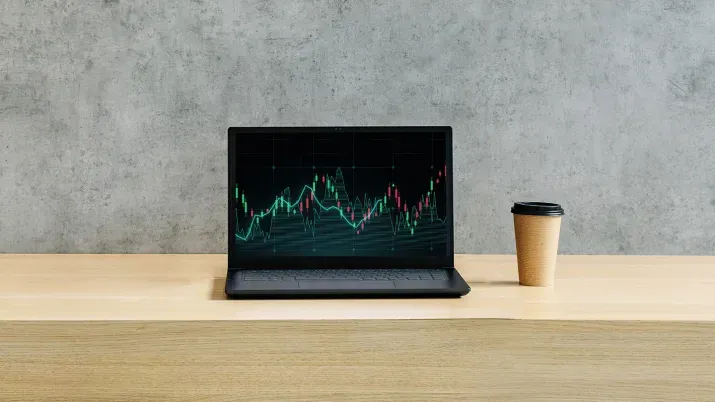From journalists to analysts: there’s no substitute for on-the-ground research
Quality Growth Boutique
Key takeaways
- Our Quality Growth team employs former investigative journalists who tap into non-traditional sources to help enhance our research process.
- Robert Berner’s on-the-ground research led to increased conviction in industrials company RB Global.
- Mara Der Hovanesian’s research on Dollar General prompted our portfolio manager to sell the position before a significant stock drop.
- Zhen Li tested Estee Lauder’s ability to turn around its business in China, leading the portfolio manager to decline re-investment.
A journalist’s curiosity and persistence can add value to the investment process. Our Quality Growth research team includes three former investigative journalists who use their experience to go off the beaten path and gather intelligence from non-traditional sources, ranging from customers, suppliers, and former executives to industry lawyers and even academia.
By tapping into unconventional sources, our investigative analysts help identify trends ahead of the market, avoid potentially costly investment mistakes, and use new perspectives to test investment rationales. In short, their inputs have become a valuable part of our Quality Growth research process.
Addressing red flags
Robert Berner, armed with decades of experience as an investigative reporter for BusinessWeek and the Wall Street Journal, identifies new information to detect risks and opportunities that pure fundamental analysis might leave unnoticed. His findings often prompt our portfolio managers to rethink a holding or, in the case of RB Global, to reinforce the original thesis. His on-the-ground research ultimately led the portfolio manager to increase the position.
Case study 1: Increased conviction in RB Global
RB Global, a leading auctioneer of heavy equipment, acquired IAA, an online auctioneer of damaged cars. While IAA’s business model was perceived as an efficient way to quickly unload cars and capture a strong price, the company had been struggling. It lost a crucial national contract with Geico due to non-compliance with service-level agreements.
Could RB Global turn the tide for IAA? Robert visited IAA's yards in California, where he found cars haphazardly arranged, a stark contrast to the neat rows at Copart, IAA's main competitor. But conversations with IAA yard managers revealed that RB Global was actively engaged in improvement. They had implemented a branch "scorecard" with six Key Performance Indicators (KPIs) and developed action plans for underperforming yards. Further discussions with insurance executives revealed a market eager for a strong competitor to Copart, which was promising for IAA. As Robert travelled to more yards, he saw cars neatly arranged, operations were more organized, and cars were moving faster off the lot. Yard managers and contract tow-truck drivers reported a more streamlined operation. IAA's turnaround tale was unfolding, and Robert will continue to apply his investigative-journalist skills to monitor the progress.
Preventing blow-ups
A journalist’s ability to ignore preconceived notions is particularly valuable for traditional research analysts who may be vulnerable to confirmation bias. Such was the case with Dollar General, a previous holding. After establishing a position in early 2020, cracks were starting to appear in Dollar General’s mission. Mara Der Hovanesian, a former editor at BusinessWeek and reporter for Dow Jones Newswires, Barron’s Magazine, and The Wall Street Journal, identified financial challenges for its customers, low-income families. She also found growing backlash to Dollar General’s aggressive growth plans. Her research prompted the portfolio manager to sell the position in May 2022, just a few weeks after the stock had reached its all-time high and before a Department of Labor (DOL) fine was mandated. Since then, the stock plummeted.
Case study 2: Sold position in Dollar General
For decades, Dollar General's retail focus on low-cost everyday essentials in rural and lower income communities helped it thrive during both good and bad times. Following its privatization in 2007 and subsequent IPO, the Tennessee-based company emerged with a streamlined strategy to keep costs low while it launched an aggressive national expansion campaign. Number of stores increased from 12,000 in 2015 to some 20,000 today, exceeding rivals like Wal-Mart and Target for new store count. The winning dollar-store format was among the fastest growing in the US retail landscape. New supply chain efficiencies and lean labor costs led to high profit margins and solid financial performance.
What went wrong? Mara interviewed critics who argued that the proliferation of Dollar General stores contributed to the decline of local small businesses and grocers. This sparked community activists and local officials to push back against new openings, citing concerns over the effects on local economies and community character. She also interviewed former employees, many of whom said working conditions were untenable. The company faced ongoing criticism over labor practices, including low wages and minimal benefits for employees. Worse, stores that were short-staffed during late hours became a magnet for crime. In 2024, the DOL slapped the company with a USD 12 million fine for failure to keep its employees safe and required Dollar General to increase security and add staff in all stores. These mounting challenges increased operational as well as reputational cost.
Retailer giants Walmart and Amazon began to heavily invest in offering low-cost goods; both have more resources to invest in technology, supply chain efficiencies, and customer experience improvements. Dollar General struggled to maintain a competitive edge and its low-price promise. After we sold the stock, the company announced it will close some 1,000 stores. Supply chain disruptions and higher costs continued to erode profit margins, leading to questions around the company’s ability to sustain its growth.
Testing investment theses
Our investigative analysts work on projects that are as varied as the industries and geographies that we invest in. They sometimes revisit a previous holding to test the viability of a new product or service, assess competitive pressures, or examine changes to a corporate culture. In the case of cosmetics company Estee Lauder, Zhen Li, based in Hong Kong and with previous experience at the New York Times in Shanghai covering China-related topics and later as a freelance reporter on China’s nuclear power industry, tested Estee Lauder’s ability to turn around its business in China. Robert Berner investigated the impact of Estee Lauder’s corporate restructuring.
Case study 3: Declined re-investment in Estee Lauder
We previously sold our position in Estee Lauder due to concerns in its China business, and when evaluating whether to re-invest, concerns still lingered. Poor performance was perceived to be a result of cyclical weakness, but when Zhen looked under the hood, she found significant company-specific issues.
Zhen uncovered issues in its duty-free channel in 2020 after speaking with cosmetics distributors, professionals working in duty-free stores, and Estee Lauder’s competitors in the Chinese market. During China’s COVID lockdown period, from 2020 to early 2023, a high proportion of Estee Lauder’s products purchased from duty-free stores were resold in unauthorized channels, causing disruptions in Estee Lauder’s official pricing system, and damaging its brand equity. Its inventory grew excessively, and heavy discounts enticed consumers to stock up cosmetics which would take months or even years to finish.
We concluded that there’s no quick fix for Estee Lauder in China due to decelerating consumption, intensifying competition from Chinese players, and the company’s ongoing restructuring program, all of which accumulated uncertainties.








